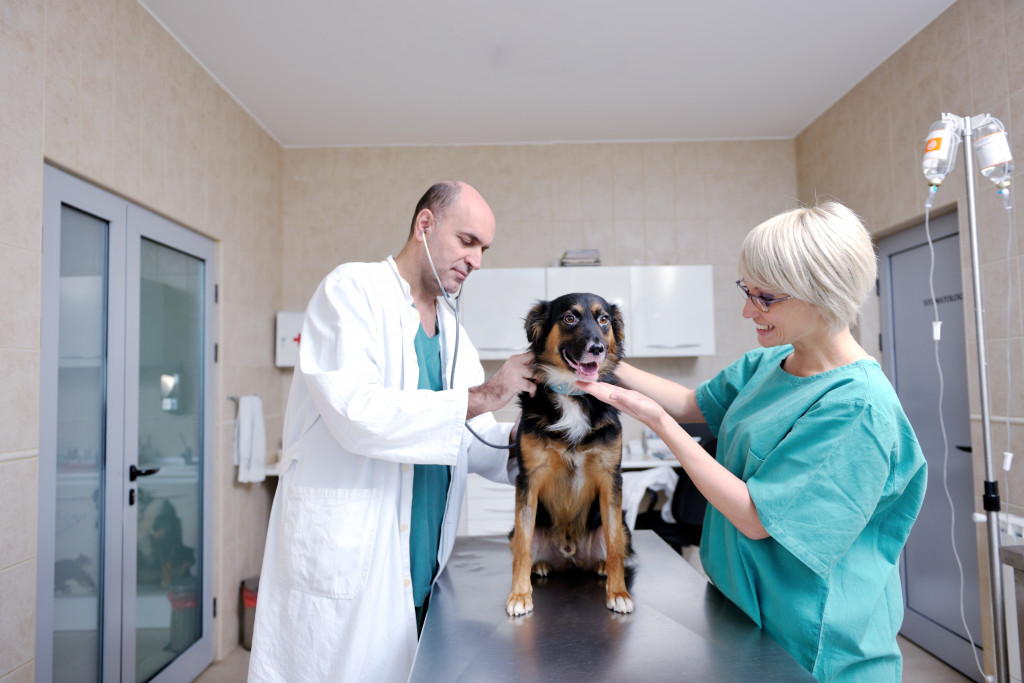It might be that for the first time in your life, you’ve bought a dog or adopted a pet from the animal shelter. If this is the case, you should first familiarize yourself with the basics to ensure your new furry companion is healthy and happy.
1. Know about the dog’s basic needs
A dog’s nutritional requirements vary from breed to breed and age to age. Thorough research can help you determine a good diet for your pet based on size, weight, and level of activity. Be sure to stick to what you learned as feeding your pet too many treats or table scraps can make them obese.
A dog’s other needs are relatively simple but vary wildly from breed to breed. If you are not sure about how to take care of a specific breed, you can ask a veterinarian for help. But if, for example, you’ve purchased a puppy from a Goldendoodle breeder, you can also ask them for advice on how to take care of your pooch.
Dogs need an appropriate sleeping area, access to water at all times, mental stimulation including dog toys or chew bones, and opportunities for exercise. Never leave your pet alone for extended periods of time as this can be extremely stressful on their psyche!
2. Learn about your dog’s behavior and figure out how to handle it
Certain breeds like the Siberian Husky, German Shepherd, and Rottweiler require lots of exercise and attention as they can be quite hyperactive. If you’re not someone who enjoys going on long walks or runs every day, you may want to choose a different type of dog.
Similarly, some dogs are more aloof than others. Dogs like the Komondor or Chow Chow are more likely to ignore you unless you train them otherwise so if this is what you desire from your pet, be aware of this issue right away.
3. Get vaccinated
Be sure to get all of the puppy vaccinations that are appropriate for your environment. Rabies is common in many countries but don’t be surprised if it’s not present where you reside. Other vaccines are often required by law so familiarize yourself with what you will need to do to ensure your dog is healthy. This might include shots for Lyme disease, canine distemper, and more.
4. Spay or neuter your dog

There is an overpopulation of dogs in the world and we as humans are partly to blame. If you plan on keeping your dog as a pet and not selling them later down the line, you can get them sterilized to avoid being surprised with more puppies to take care of.
But if you plan on selling your dog someday, sterilization can reduce their desirability as a potential pet because it decreases interest in the opposite sex, which means fewer pups born into this world that may be homeless or unwanted.
5. Know about dog licenses and permits
Different cities have different requirements for licensing pets so be sure to do some research on this particular topic before bringing your new pet home. Certain breeds may need to be registered and others might require a permit and regular inspections. You also have to do some research on where you can and cannot bring pets in like certain restaurants or establishments in your city.
6. Socialization
It’s important that the people who are taking care of your pet are always kind and patient as this can have a large impact on how friendly they are towards strangers. Dogs are social animals just like humans but if they don’t get to interact with a variety of people and other types of dogs, this can make them seem aggressive or antisocial in the future.
If you don’t live in an area where there are many pooches around your home, be sure to take your dog out for daily walks so they’re exposed to lots of different living species. Also, ensure that you take your dog to the vet on a regular basis (every six months or so) to prevent them from being exposed to any infectious diseases.
7. Find dog training courses
Dog training courses are available almost everywhere these days. Even though you may have a pure breed that has been trained from an early age by another breeder, it’s still a good idea to enroll them in a course. Not only does this allow your dog to socialize with other dogs and their owners but the training also refreshes old techniques and introduces new ones as well.
8. Check with your bank or credit card company about pet insurance
Pets can get sick just like humans so it’s important you plan ahead for these expensive emergencies. Even something as simple as a cut paw could cost hundreds of dollars if you don’t have the appropriate pet insurance.
Dogs and other pets can be great for your mental and physical health so if you feel like you’re ready to take care of a new addition, just make sure that they are vaccinated and spayed or neutered as soon as possible. Remember that this is a lifetime commitment so shower your dog with love and attention, and they will do the same for you.



